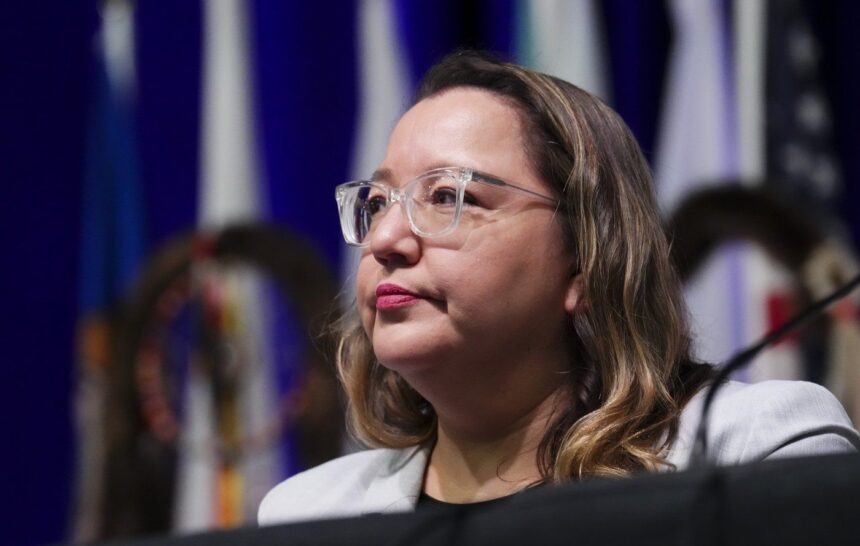The specter of western alienation has taken a new turn as Assembly of First Nations National Chief RoseAnne Archibald called for a comprehensive review of all natural resource agreements between Indigenous nations and provincial governments. This unprecedented move comes as Alberta Premier Danielle Smith’s recent commentary on potential separation from Canada continues to reverberate through political and economic circles.
“We cannot ignore the profound implications that provincial separation discussions have on treaty rights and resource agreements,” Chief Archibald stated during yesterday’s press conference in Ottawa. “These agreements were signed with the understanding that they exist within the framework of a united Canada and its constitutional obligations to First Nations.”
The review would examine hundreds of resource-sharing deals worth billions of dollars, particularly in Alberta’s oil sands region where significant partnerships between energy companies and Indigenous communities have flourished over the past decade. According to recent economic assessments, Indigenous businesses in Alberta’s energy sector generated over $2.4 billion in revenue last year alone.
Premier Smith’s office responded swiftly, characterizing the AFN’s call as “premature and potentially harmful to established economic partnerships.” In a statement released Tuesday evening, Smith emphasized that “separation discussions remain theoretical explorations of Alberta’s options within Confederation, not concrete policy initiatives.”
Political analysts note this development marks a significant shift in the separation discourse. “We’re witnessing the first major institutional response from Indigenous leadership to what many had previously dismissed as political rhetoric,” explained Dr. Caroline Renaud, political scientist at the University of Toronto. “The AFN is essentially saying that treaty relationships supersede provincial boundaries and ambitions.”
The federal government has maintained a cautious approach. Indigenous Relations Minister Patty Hajdu acknowledged the AFN’s concerns while reiterating Ottawa’s commitment to reconciliation efforts. “We understand Chief Archibald’s position and take seriously our obligations to ensure Indigenous rights are protected,” Hajdu told reporters on Parliament Hill.
Legal experts suggest any comprehensive review could create uncertainty in Canada’s resource sectors. “This introduces a previously unconsidered dimension to separation discussions,” said constitutional lawyer Terrence Davidson. “Treaty rights exist between First Nations and the Crown. A province cannot unilaterally renegotiate these relationships through separation without significant legal complications.”
Industry representatives have expressed concern about potential market instability. The Canadian Association of Petroleum Producers noted in a statement that “regulatory certainty is essential for continued investment in Canadian energy projects,” while calling for “thoughtful dialogue that respects both Indigenous rights and economic partnerships.”
Meanwhile, several Alberta First Nations chiefs have taken more nuanced positions. Chief Billy Morin of the Enoch Cree Nation emphasized the importance of maintaining existing economic relationships while acknowledging legitimate concerns about sovereignty. “We’ve built mutually beneficial partnerships that support our communities, but these exist within the context of treaties signed with Canada, not individual provinces,” Morin stated.
As this situation unfolds, fundamental questions emerge about the intersection of Indigenous sovereignty, provincial autonomy, and national unity. Can the delicate balance of resource development, constitutional obligations, and reconciliation efforts withstand the centrifugal forces of regional discontent? The answer may reshape Canada’s political and economic landscape for generations to come.


















